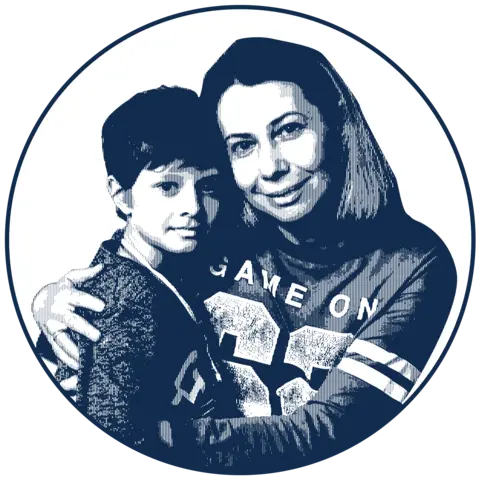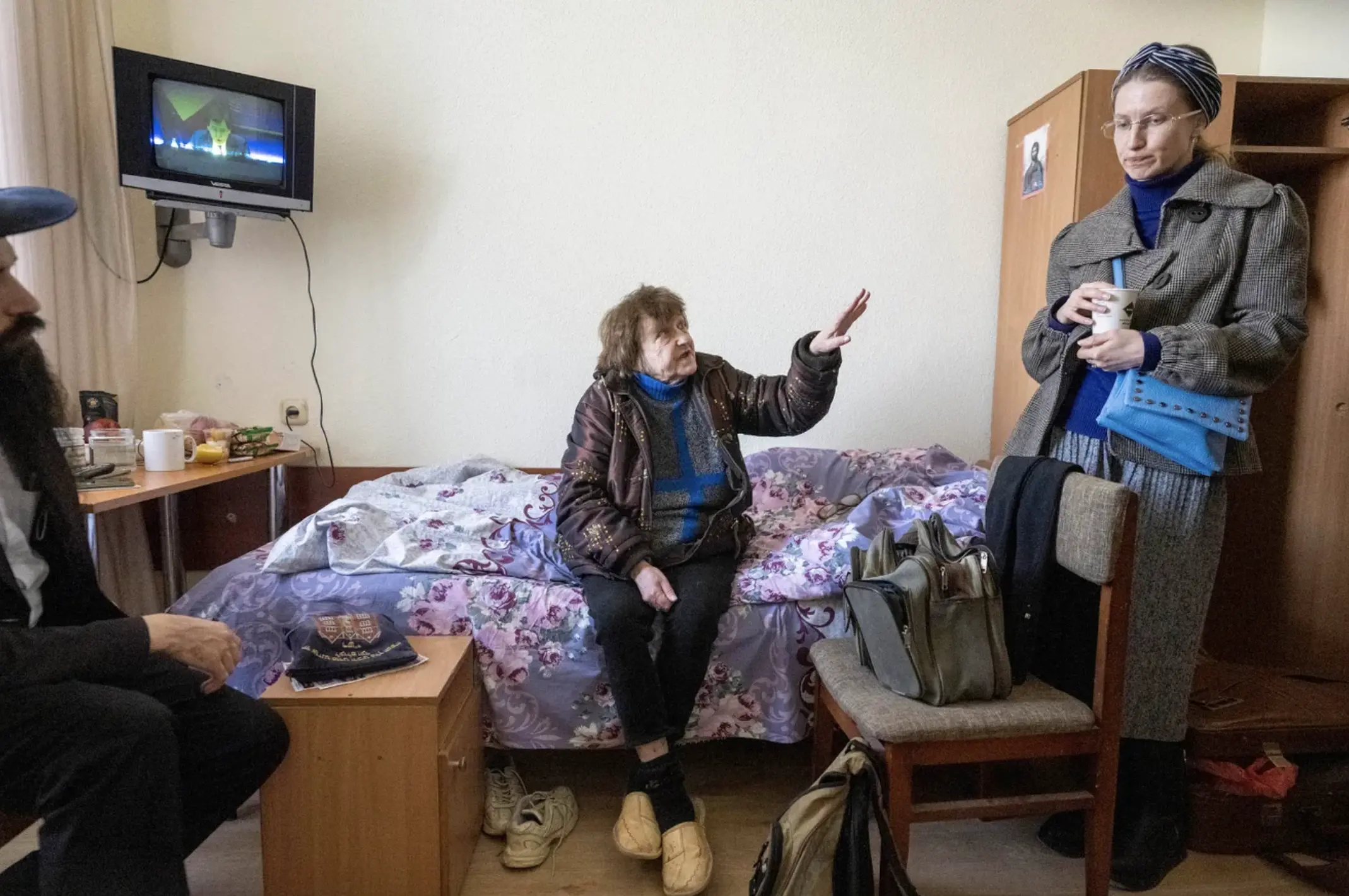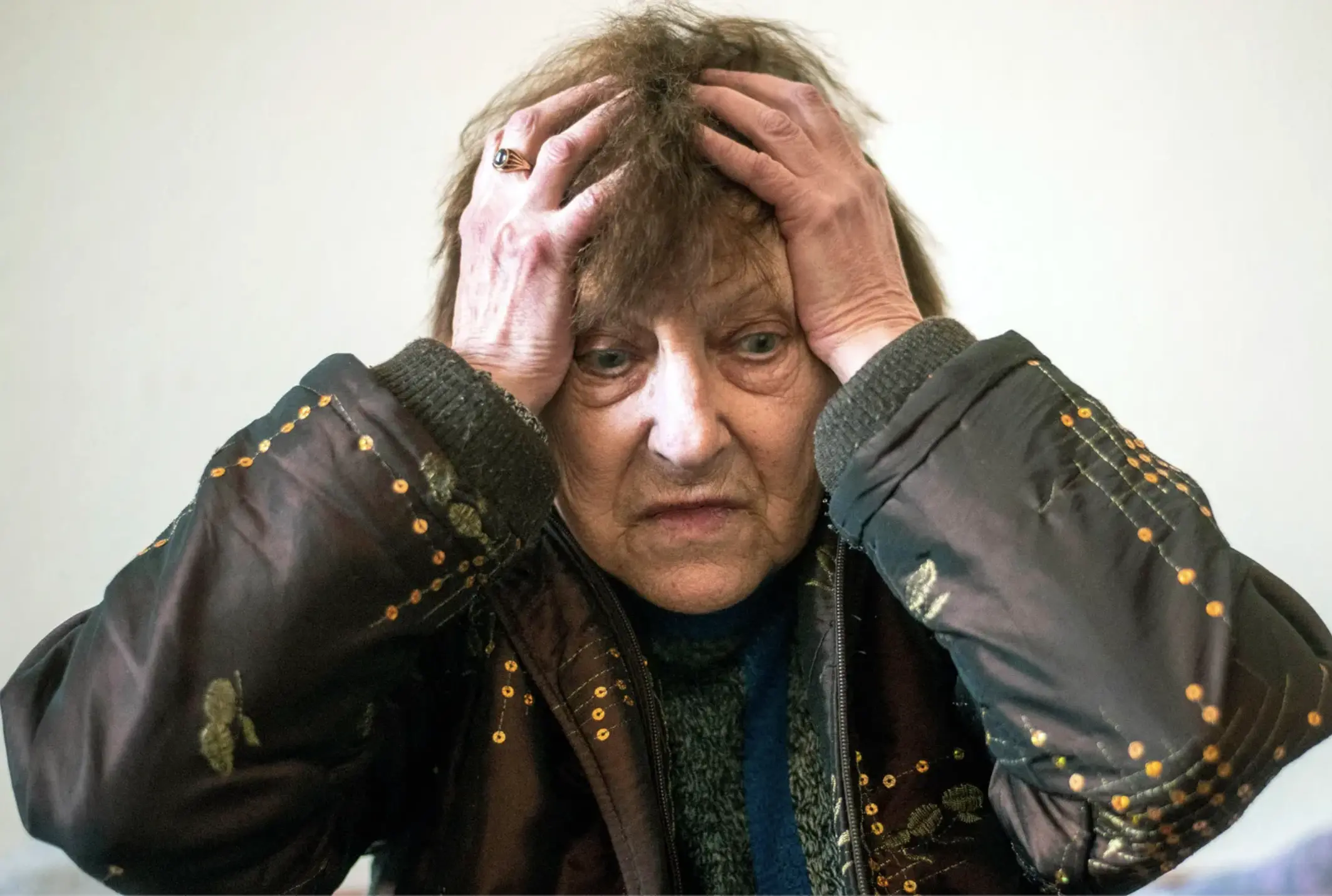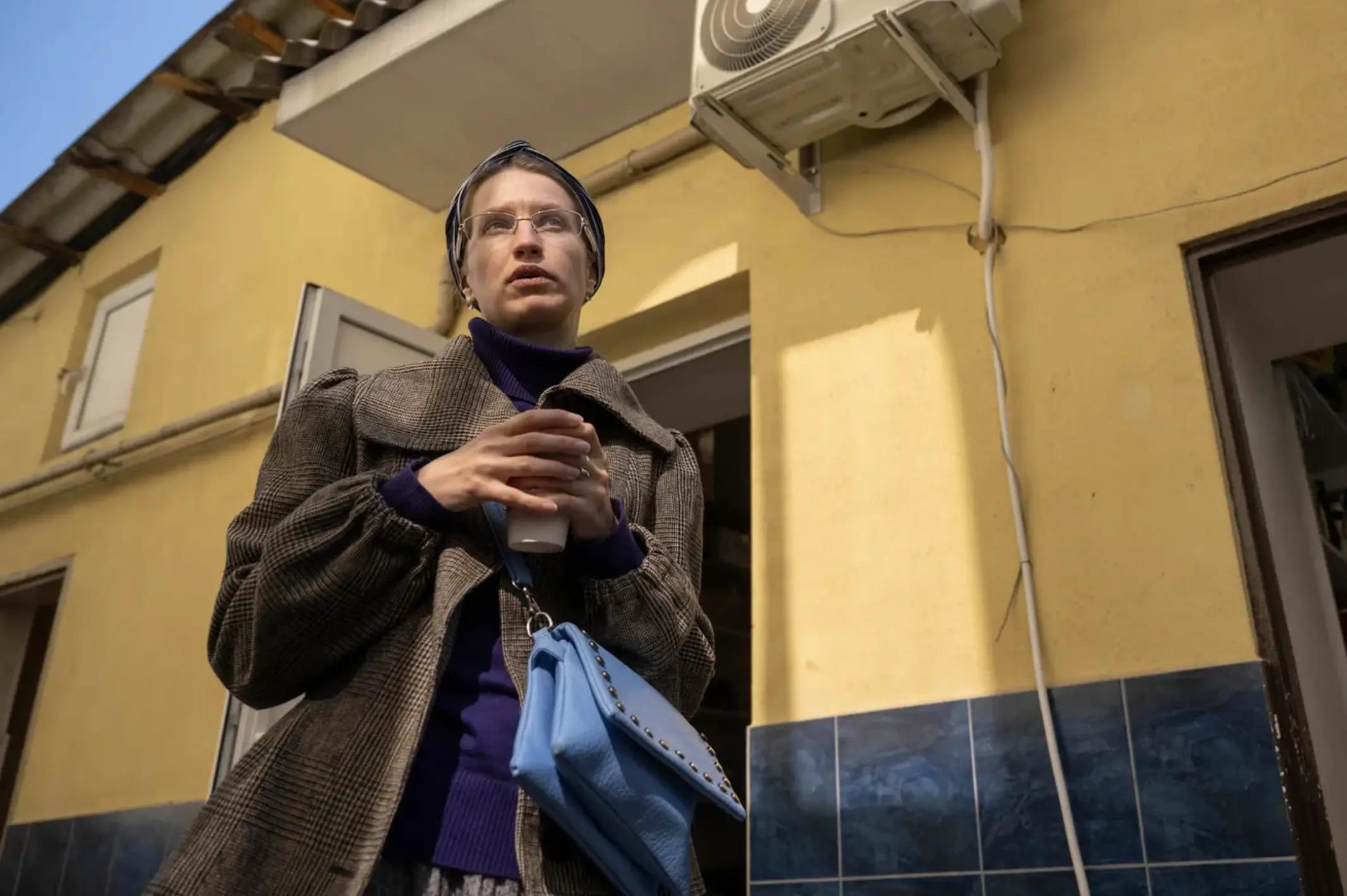CHISINAU, Moldova – Olena Khorenjenko rolled her eyes at the idea that Nazis control her homeland, the baseless assertion Russian President Vladimir Putin made to defend his deadly military assault on Ukraine.
An Orthodox Jew born in Kyiv, Khorenjenko said she has never faced any organized or even casual discrimination in daily life. And she has certainly never seen any evidence of Nazi activity.
“There were boys who fought in school, but it was not because they were Jewish. They fought because they are boys,” said Khorenjenko, 33, whose Jewish great-grandmother fled Poland before the German invasion during World War II.

As a nonprofit journalism organization, we depend on your support to fund coverage of global conflicts. Help us continue funding the hard costs of in-depth coverage of the Ukraine invasion—including travel, hostile environment safety training, and the increased security expenses that arise from reporting in war zones.

“I’ve never seen anything like that," she said of Putin's claims.
In a speech announcing the attack on Ukraine, Putin said he wanted to “de-Nazify” the country, a statement that many found baffling and bizarre. Ukraine is a democratic country led by a Jewish president, Volodymyr Zelenskyy, whose family was almost wiped out in the Holocaust.
Zelenskyy said three of his grandfather's brothers were victims of the Holocaust, executed by German occupiers. His grandfather fought in World War II as part of the Soviet army.
Putin's war has uprooted thousands of Ukrainian Jews, including approximately 5,000 refugees who flooded into neighboring Moldova. They've found safety and comfort in shelters that once served far different purposes, including a Soviet-era sanatorium and a wedding venue with crystal chandeliers and velvet-roped chairs.
“We had a good life. We had jobs and houses. Nobody wanted to leave," said Viktoria Fikhman, 37, who escaped shelling in Odesa with her husband and two children, including a young daughter with chickenpox.
They stay at a shelter overseen in part by members of Moldova’s Jewish community. They're not sure where they'll go next — apartments in the capital of Chisinau are either unavailable or too expensive.

At another shelter, refugee Tatiana Larina, 73, from Mykolaiv, Ukraine, recalled how she saw antisemitism in her youth but never since the Soviet Union dissolved in 1991. Her father changed his name to be less Jewish, she said, and that helped reduce some of the hateful attention.
“Nobody painted stars on doors or walls. It was more of a rotten attitude then,” she said through an interpreter. “But after Ukraine became an independent country, I haven’t seen anything like that. The attitude changed.”
Sitting on her narrow bed as an aging television played clips of reality TV shows, Larina said she was thankful to have left safely when the shelling began. She recalled packing her tan leather suitcase by candlelight when the power went out and how some journalists who saw her struggling to carry the bag helped load it onto a refugee bus. Her husband died of COVID-19 a year ago, and she hopes to migrate to Israel, at least temporarily.
Among millions of Ukrainian refugees, Jews find comfort in Moldova's shelters
Khorenjenko, Fikhman and Larina are among about 3.7 million Ukrainians who fled their country after Russia's invasion. Though most left via Poland, a growing number cross into neighboring Moldova, and those of the Jewish faith have found comfort within the open doors — albeit guarded by a metal detector — of the Chabad Synagogue of Chisinau.
There, faith leaders, including Rabbi Mandel Askerold serve hot kosher meals, minister to spiritual needs and arrange housing. Within the compound's walls, workers boil eggs and bake challah.
For refugees, it's not just food that warms them — it's the friendly faces and smiles, the familiar Hebrew letters on signs, the finger-sized mezuzah cases hung at the entrances to the buildings, which the faithful touch as a form of prayer as they pass.
“In our tradition, all Jewish people around the world are one family. Even if we have never met before, it’s important to show that we are that united family," Askerold said. “For these people, it means everything. Because this is their time of need.”
Seeking safety, Ukrainian Jews have put their lives on hold and left virtually everything they know.

Khorenjenko fled Kyiv three days before she was supposed to get married. Her fiancé lives in New York City, and they put the wedding on hold until the fighting stops. She lives in a hotel with her mother and young daughter, translating for other refugees. Many Ukrainians speak Russian as their first language, and Moldovans primarily speak Romanian, although many also speak Russian or Ukrainian.
“It’s amazing how two weeks can change your entire life," Khorenjenko said. "This place is like an island of hope — a place of stability. A place for food and to rest. It’s both sad and amazing.”







